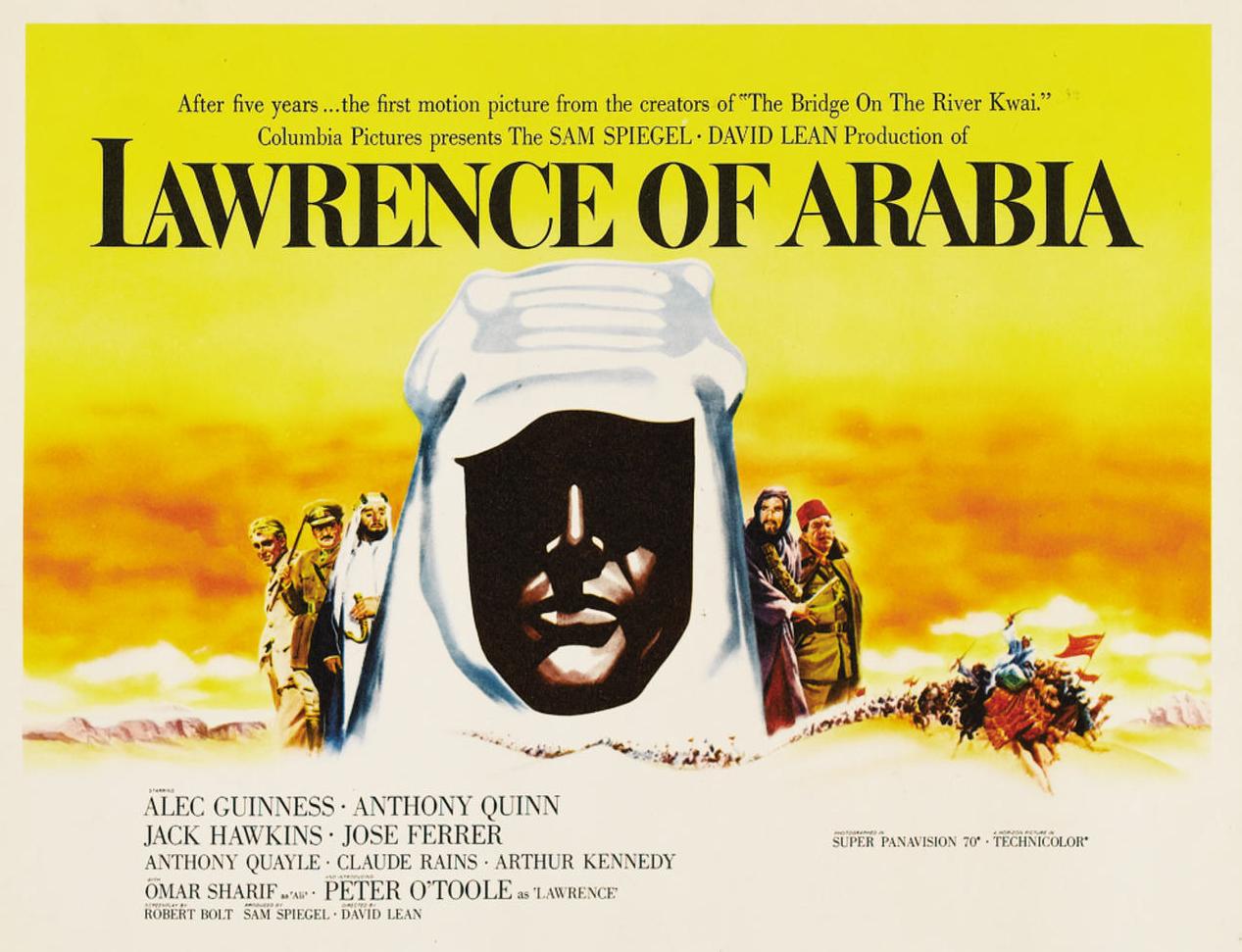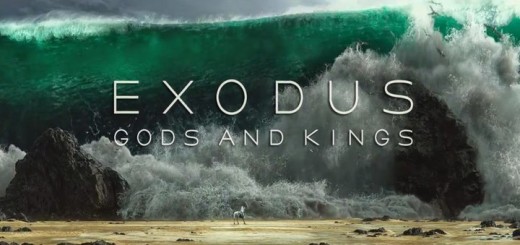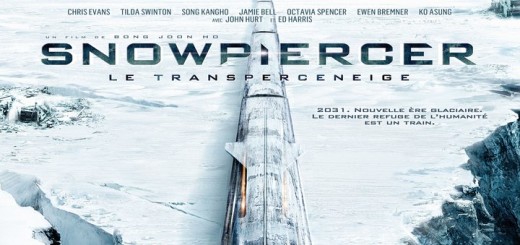Lawrence of Arabia – Film Review
Today we’ll talk about Lawrence of Arabia, the epic; the greatest epic.
Widely considered to be one of the greatest films of all time, it is a film that remains one of the most magnificent milestone films which has stood the test of time and continues to awe audiences around the world. This is definitely something I find myself in agreement of; seeing as despite Lawrence of Arabia not being my favorite film, it is however, what I consider to be the best film of all time.
Many critics view Gone with the Wind and Casablanca along with this, as the greatest films of all time, mainly because it has everything an audience would want. It has drama, adventure, war, romance and intrigue. Once a film manages to encapsulate all of these genres with grace, then you’ve got a film that will last.
Arguably, Lawrence holds all of these genres, expect perhaps the romance. Despite hailing from a time when epic romance films drew large audiences, Lawrence lacks a clear romantic subplot. There’s no female, or male for that matter, romantic creation in it. This, of course, ran parallel with the life of the man the film is based on, as Lawrence’s sexuality was a thing kept in secret. I would argue that there is in fact somewhat of a romantic subplot within the film, that of Lawrence’s love of the desert and his eventual identity crisis. ‘For who would ever want a desert’ Prince Faisal says at one point in the film. In another scene Lawrence is questioned about why he’s here, in the desert. I like the sand, he says. ‘It’s clean.’
In view of this, the filmmakers simply set out to create a film around the life for which people knew he led. Lawrence of Arabia is the result.
It was directed by David Lean, known by many as the godfather of epic film. It is a director I treasure, as historical epics are probably my second favorite genre, falling only behind science fiction. In this day and age, I rarely see great epics like this made. It’s one of the reasons why filmmaker Ridley Scott is slowly becoming my favorite director, as he seems to be the only one who is able to create epics in the way David Lean did. I’d consider him the only viable successor.
Released in 1962, Lawrence of Arabia stars the late Peter O’Toole in the role that made him an overnight star. Not to mention where he would get his first academy award nomination, for then to go on and receive seven more, none of them wins, putting him in the Guinness book of records as the most academy award nominations with no win. ‘Always a bridesmaid, never a bride’ O’Toole said in 2003, when he received his honorary Oscar, for his contribution to film. He said he could still earn one then, and three years later he received another nomination; his last. Yet he lost again. A shame.
Also in the film is Omar Sharif as Ali, the striking Arab. Sharif would go on to star in Lean’s other great epic; Doctor Zhivago. The film also stars Alec Guinness, arguably in his greatest role. He has obviously become a staple of film culture since then, but not from what he himself wanted. His role as Obi Wan Kenobi is the 1977 film Star Wars immortalized him. To his chagrin, for he would eventually come to hate Star Wars and the fact that all of his other great works now took a backseat to this.
Lawrence of Arabia tells the true story of Thomas Edward Lawrence, more commonly known as T. E. Lawrence, though he would later become famous as Lawrence of Arabia.
As the First World War is erupting, Lawrence has found himself traversing Arabia during his archeological studies, and as such, he was eventually drafted into the British army and posted in the intelligence staff in the Middle East. Soon, he was working with the Arab leaders, and went on to become a trusted advisor to Prince Faisal, the leader of the Arab revolt.
From then on, he continued his aid in the Arab revolt against the Ottoman Turkish. He tells them that they wouldn’t have to deal with the small British if the Arabs would only unify, instead of fighting amongst themselves. Despite this, Lawrence finds himself loving Arabia. The desert. And the people. His identity crisis and the issue of where he belongs come up.
His pursuits in Arabia encapsulated the brilliant military tactics that involved the capture of Aqaba, a major city, and the fall of Damascus, another major city. Another important event he is behind is the tactical destruction of the railway lines that run through most of Arabia.
With a running time of 228 minutes, this is a film I initially feared. Any film which goes past the three and a half hour mark is going to be quite the endeavor. However, despite any initial qualms, this is a film that grabs you attention and takes you on an adventure.
I watched this film when I was twenty. At that point I had already worked my way through a lot of classic films which were considered legendary. While most of them certainly impressed me, this was the first classic I watched that truly got me onboard with thinking that this is one of the best films of all time. At the end of my initial viewing, I was fairly sure it was. I would recommend a second viewing though; at a large screen. Why is that? Well, in short; the desert.
Because Lawrence of Arabia is a film that was meant to be watched on the big screen. This will make you fall in love with the sweeping desert. This, with the addition of the wonderful score by Maurice Jarre, turns it into something indescribable which you’ll only have to watch for yourself to truly appreciate.
I often like to think about scenes. I’ll pick apart films I like and point out what I would call cinematic moments. A lot of films I love only have one or a couple of these in them. Lawrence of Arabia however, almost only consists of these moments. It’s a film I could watch over and over.
I hope you’ll check it out too. Find it on Netflix, rent it, buy it, or borrow it! If you think you can appreciate it, you will.












